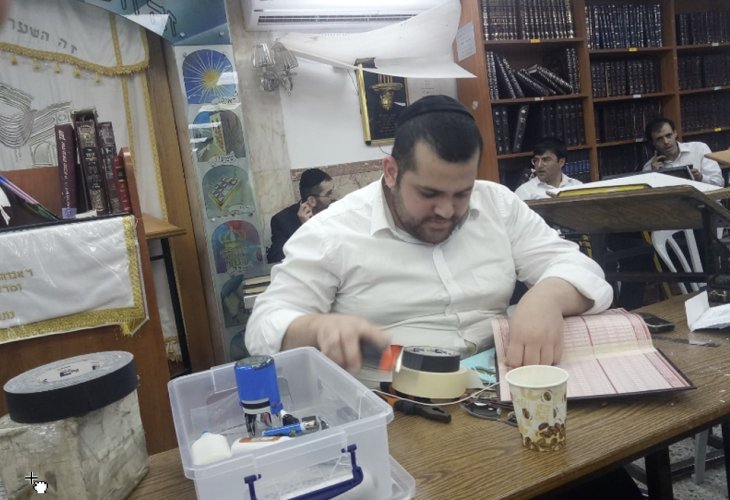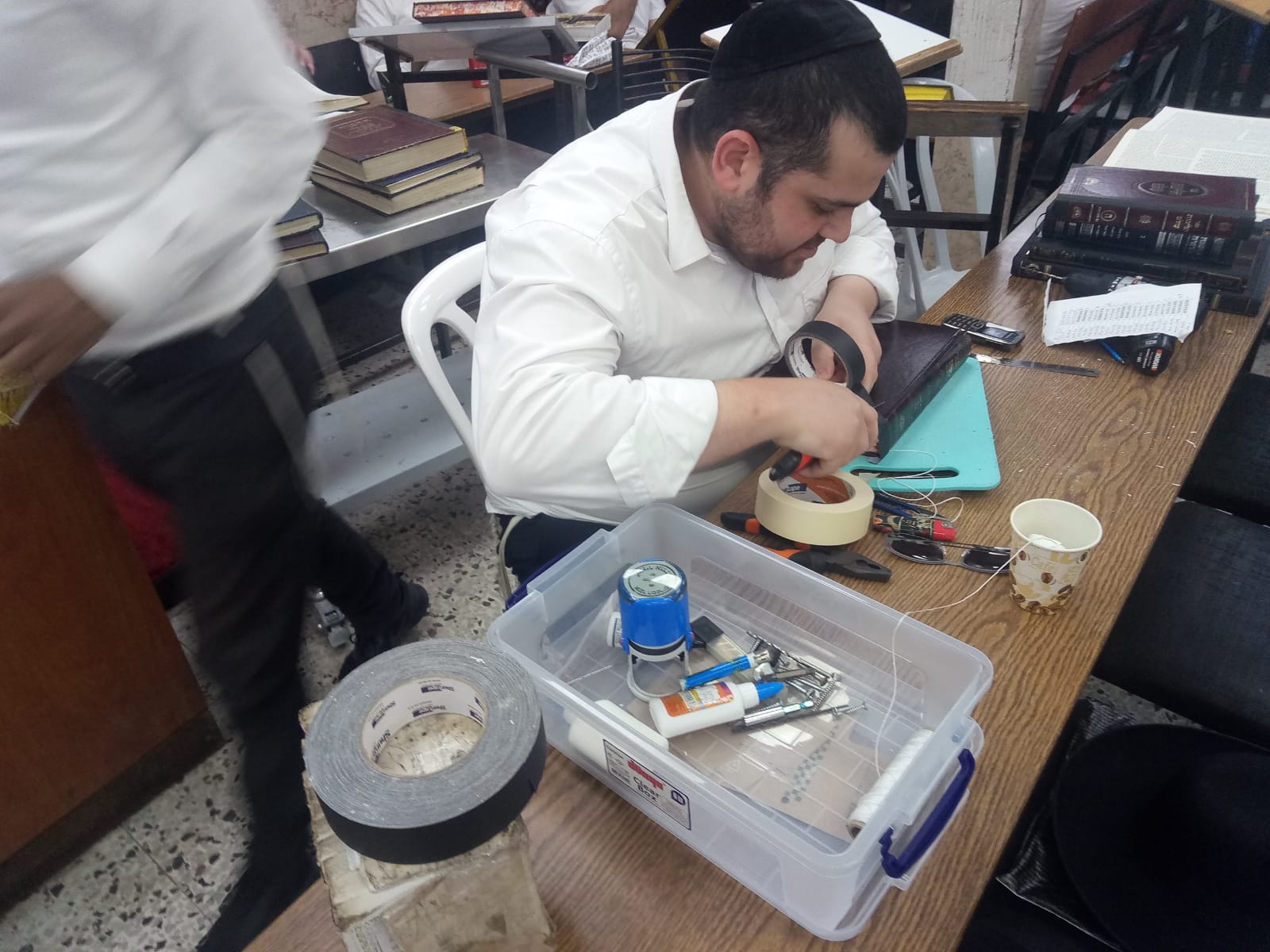Shalom Yarkoni: "I'm Sure the Books Will Advocate for Me"
For 14 consecutive years, Shalom Yarkoni has been involved in books and binding. Many religious texts, which might quickly wear out, are repaired by him, becoming durable for many years. What exactly does he do with them, how did he take on this role, and how is this linked to the match he found?
 Shalom Yarkoni, Book Binder
Shalom Yarkoni, Book BinderFrom a young age, Shalom Yarkoni felt a special connection to books. He loved buying them and reading them often. Since his time in a small yeshiva, he felt the need to give religious texts special respect. He used to collect them in the study hall after learning and put each back in its rightful place. To this day, as a scholar in a kollel, he continues this practice, and over time he has developed another pursuit - binding religious texts, a craft he has performed for 14 consecutive years. "In the book 'Kav HaYashar', it's recounted about a devout man who wouldn't bind his books, even though some were torn and worn out," he describes. "When this man went to heaven, after 120 years, he was pulled from his grave and given lashes of fire for not respecting his books. If disrespect leads to such consequences, then surely those who honor their books gain merit with them as advocates in heaven."
Longevity for Books
Many books, especially those frequently used by their readers, can quickly become worn out and torn. "For example, volumes of the Talmud that are studied over time quickly show signs of extensive use within just months," says Shalom. "If we do not bind these books well, their useful life will be much shorter compared to a bound book. When someone brings me a new book for binding, I first apply white glue inside, at the front and back, to ensure it sticks well. Then I punch several holes and sew the book with thread. To prevent the thread from widening its hole over time, I apply a strong sticker. I then wrap all the book's edges with black glue and coat the letters on the cover with a special lacquer to keep them intact for many years. This binding method preserves the book well and significantly reduces its wear over time."
How do books reach you for binding?
"Some people approach me, and I bind for them, but most of my binding work is for the 'Meir Orah' kollel of Rabbi Moshe Deri, where I study. In any large yeshiva, where books are frequently used, there must be someone to do this. Otherwise, new books won't last long, and besides the respect they deserve, it would result in a much higher expense."

Over the years, through his involvement in this field, Shalom discovered that this holy work carries great weight. "I feel how the books stand as my advocates, and how this act ensures my prayers are accepted in heaven. When I have the opportunity to bind many books, I earnestly ask them to pray for me, and I truly see great divine assistance. I believe this merit also led to my marriage, as my wife's last name is 'Mekled,' which means 'book binder' in Arabic. Another unique phenomenon I've witnessed is how easy it is for me to find a specific book in the kollel library, while another scholar may struggle for a long time. Sometimes the book is placed on a chair, a table, in the women's section, or a corner, and when another scholar requests it, it comes into my hands quickly. When more scholars join me in the binding work, I explain the great merit, and they also share their experiences of feeling divine providence after praying before the books they bound. It's also told of Rabbi Kaduri, of blessed memory, that in his youth, he bound books, and every book he bound, he would read thoroughly."
And what about old books? Is it worthwhile to bind them too?
"It depends on the book's condition, and although it is more challenging and complex, I still do this work. Some books are so worn that they cannot be repaired, but there are those that I am still able to bind, and I take pleasure in seeing them last many more years."
Keeping Order
Though Shalom has taken on the task of arranging books in the kollel with great love, it sometimes creates uncomfortable situations. "Occasionally, a situation arises where a scholar 'hides' a book for future study, and I have to insist they place it back to ensure it is accessible to all students in the yeshiva. Also, about twice a year, the kollel asks everyone to take home their books, and if any are left, they become public property. This arrangement helps maintain order and reduce clutter. Most scholars comply, enabling proper cleaning, but there are always those who forget or neglect, and after the deadline, their books belong to the kollel. Sometimes scholars come back after a long time demanding their books, but they must understand there was a period for this, and beyond that, the book is already property of the yeshiva. Beyond these roles, there is also the matter of identifying books purchased for the kollel but not used over time. Such books are sold to scholars in special sales, and new books are purchased in their place."
We often encounter the issue of book wear in public places, like synagogues and tombs of the righteous. What do you feel when passing through such places?
"It is painful to see religious texts in a state of disrespect, and personally, it hurts to see books that have undergone a binding that was not done properly. Sadly, I cannot save all the books in the world, and I sincerely hope we all wake up to preserve their honor, in every situation and every place. Of course, may these books always serve as advocates for us, not like that devout man who was punished for not taking care of his books."

